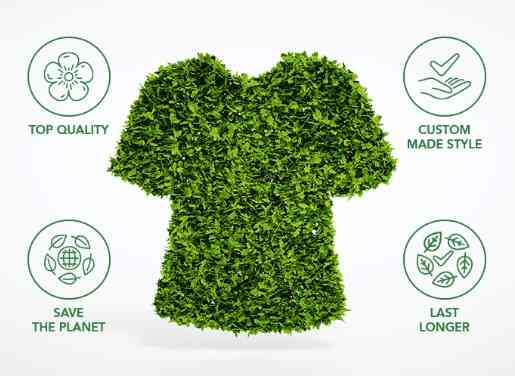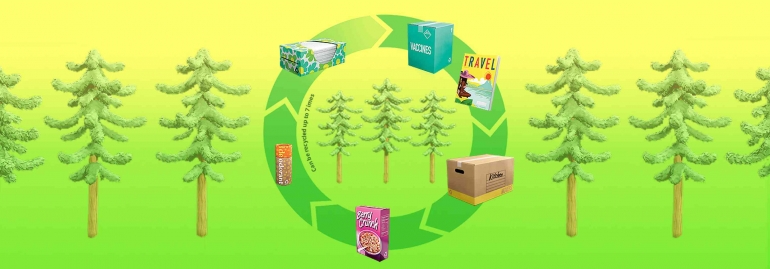Introduction
In an ever-changing world, the pursuit of sustainable living has become increasingly vital. As societies awaken to the environmental challenges we face, corporations like Royal Golden Eagle (RGE) have taken significant strides to embrace sustainable practices across their various industries. This article delves into RGE's commitment to sustainability and explores two essential aspects: sustainable fashion and paper upcycling. By incorporating sustainability into fashion and promoting paper upcycling, RGE aims to leave a positive impact on the environment, promote responsible consumption, and contribute to a greener future.
RGE's Sustainable Living Initiatives
Royal Golden Eagle, a leading corporate group based in Indonesia, recognizes the importance of sustainable living and acknowledges its responsibilities towards the environment. RGE has taken a proactive approach to integrate sustainable practices into its core business operations, aiming to reduce its ecological footprint significantly.
RGE's commitment to sustainable living extends across its diverse business interests, including pulp and paper, palm oil, viscose staple fiber and energy. By adopting a holistic approach, RGE seeks to address sustainability challenges unique to each sector while promoting a unified vision of environmental stewardship.
In its pulp and paper operations, RGE has set ambitious targets to achieve zero-deforestation and responsible land-use policies. By partnering with local communities and environmental NGOs, RGE actively works to conserve biodiversity and protect high conservation value forests. Through its Forest Conservation Policy, RGE ensures that its suppliers adhere to strict sustainability standards, prohibiting deforestation, peatland development and exploitation.
Furthermore, RGE has implemented sustainable agricultural practices in its palm oil operations, ensuring that land is cultivated responsibly without contributing to deforestation or social conflicts. By engaging with smallholders and promoting best practices, RGE aims to transform the palm oil industry into a model of sustainable development.
In the viscose staple fiber industry, RGE has prioritized responsible sourcing of raw materials, including wood pulp. By upholding stringent supply chain standards, RGE ensures that the entire manufacturing process aligns with sustainable practices, benefiting both the environment and the communities involved. The group's efforts in this sector have garnered recognition and certification from leading sustainability organizations.

Understanding Sustainable Fashion
Sustainable fashion, also known as eco-fashion or ethical fashion, revolves around creating clothing and accessories in an environmentally and socially responsible manner. This approach emphasizes reducing waste, conserving resources, and ensuring fair treatment of workers throughout the supply chain.
RGE's Role in Sustainable Fashion
As part of its commitment to sustainable living, RGE has explored ways to support and advocate for sustainable fashion. One of its key contributions is through the sustainable sourcing of raw materials like wood pulp and viscose, which are essential components in the textile industry. By ensuring that these resources come from responsibly managed forests. By ensuring that these resources come from responsibly managed forests, RGE supports the sustainable fashion movement and helps combat deforestation.
Moreover, RGE collaborates with leading fashion brands and designers to promote the use of sustainable fibers in their collections. By fostering these partnerships, RGE aims to encourage the adoption of sustainable practices throughout the fashion industry and drive positive change in consumer behavior. The group's support for fashion events and initiatives centered around sustainability further demonstrates its commitment to making a difference in the fashion world.
RGE also invests in research and development to create innovative, sustainable textile solutions. This includes exploring alternatives to conventional materials, such as developing fabrics from agricultural waste and recycled fibers, thus reducing the environmental impact of fashion production.

Paper Upcycling: A Step Towards Circular Economy
Paper upcycling is an innovative concept that aligns with the principles of a circular economy. Instead of discarding paper products after their initial use, upcycling involves transforming them into new and valuable items, thus reducing waste and conserving resources.
RGE's Initiatives in Paper Upcycling
Given its involvement in the pulp and paper industry, RGE is uniquely positioned to drive paper upcycling initiatives. The group has invested in research and development to explore ways to upcycle paper waste into various products, such as eco-friendly packaging materials, stationery, and even fashion accessories. These efforts align with RGE's commitment to sustainable living, fostering a more sustainable approach to paper consumption.
By advocating for paper upcycling, RGE aims to promote a circular economy model within, the industry, where resources are continuously reused and regenerated, reducing the overall environmental impact and contributing to waste reduction. The group's dedication to closing the loop in paper consumption demonstrates its holistic approach to sustainability.
Collaboration and Outreach
RGE understands that achieving sustainability requires collaborative efforts involving stakeholders from various sectors. The group actively collaborates with NGOs, government bodies and other industry players to address shared environmental challenges effectively. Through these collaborations, RGE fosters knowledge sharing and implements best practices that go beyond its own operations, contributing to the broader global sustainability agenda.
Additionally, RGE engages in outreach programs to raise awareness about sustainable living and promote responsible consumption. Through educational initiatives and community involvement, RGE aims to inspire individuals and other corporations to embrace sustainable practices in their daily lives. The group's partnerships with local communities and educational institutions contribute to building a more sustainable future at the grassroots level.
By organizing workshops, seminars and sustainability events, RGE seeks to empower local communities and business partners to adopt sustainable approaches in their practices, thus creating a ripple effect of positive change. Furthermore, RGE leverages digital platform and social media to amplify its sustainability message, reaching a broader audience and inspiring action on a global scale.
Conclusion
In conclusion, Royal Golden Eagle's (RGE) commitment to sustainable living is evident through its multifaceted initiatives that span various industries. By advocating for sustainable fashion through responsible sourcing and partnering with fashion brands, RGE is driving positive change in the textile industry. Moreover, RGE's efforts in paper upcycling showcase its dedication to promoting a circular economy and reducing paper waste.
However, the journey towards sustainability is ongoing and RGE continues to evolve its practices to achieve even greater positive impact. Through collaboration, innovation and outreach, RGE demonstrates its determination to contribute to a greener future. As we move forward, it is crucial for both corporations and individuals to follow RGE's lead and make conscious choices that prioritize environmental preservation and promote a sustainable lifestyle. Together, we can build a more sustainable and thriving world for generations to come.
Follow Instagram @kompasianacom juga Tiktok @kompasiana biar nggak ketinggalan event seru komunitas dan tips dapat cuan dari Kompasiana. Baca juga cerita inspiratif langsung dari smartphone kamu dengan bergabung di WhatsApp Channel Kompasiana di SINI









